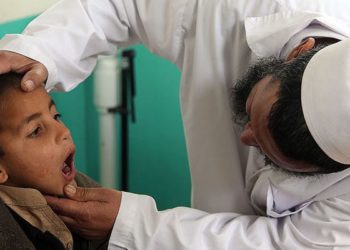Majority of pediatric medication-related visits to emergency department are preventable
1. In this prospective observational study at a large, tertiary care, trauma and referral center of pediatric emergency room visits, nearly 1 in 12 visits were medicine-related visits (MRVs) and 2/3 of the MRVs were considered preventable.
2. Pediatric patients with MRVs in the emergency department had a higher risk of admission to the hospital, and if admitted, a longer length of stay.
Evidence Rating Level: 2 (Good)
Study Rundown: Medicine-related visits (MRVs) to the emergency department are associated with preventable admissions to the hospital, increased cost, and increased morbidity and mortality in adults. This study sought to characterize the frequency, severity and preventability of MRVs in the emergency department for a pediatric population. During a 1-year period, 8% of visits were classified as an MRV by a clinical pharmacist and emergency department attending physician; nearly 2/3 of these visits were considered preventable. Patients with an MRV had a nearly 7-fold higher risk of hospital admission, and if admitted, a significantly longer hospital stay compared to patients without an MRV. Adverse drug reactions, subtherapeutic dosage, and nonadherance were the most common reasons for an MRV; antiinfectives, respiratory agents, and nervous system agents were the most commonly implicated drug classes. This study is limited by ascertainment bias among the emergency department physicians and clinical pharmacists, as well as generalizability. However, this study highlights that MRVs in the pediatric population are both prevalent and preventable and physicians can use this to develop both individual-level and systems-level approaches to increase patient safety.
Click to read the study, published today in Pediatrics
Relevant Reading: Pediatric adverse drug events in the outpatient setting: an 11-year national analysis
In-Depth [prospective observational study]: A total of 2028 pediatric patients were enrolled into this study at a large, tertiary care, trauma and referral emergency department in Canada during a 1-year period. Patients were a mean age of 6.1 ±5.0 years and 47.4% male. Participants were individually evaluated for a MRV by a clinical pharmacist and attending emergency department physician. There were 163 (8.0%; 95% CI 7.0%-9.3%) patients found to have an MRV in the emergency department, classified as a chief complaint that fell into 1 of 8 categories: adverse drug reaction, drug interaction, improper drug selection, untreated indication, subtherapeutic dosage, supratherapeutic dosage, nonadherence, and drug use without indication. The most common reasons for an MRV were adverse drug reactions (26.4%; 95 CI%19.8%-33.8%), subtherapeutic dosage (29.0%; 95% CI 13.3%-25.9%), and nonadherance (17.2%; 95% CI 11.7%-23.9%). Patients with an MRV had a 6.5 times higher risk of admission to the hospital (95% CI 4.3-9.6; p< 0.0001). Of the 163 patients with MRVs, 106 (65%; 95% CI 57.2%-72.3%) were considered preventable.
More from this author: Shared decision-making may be limited in PICU end-of-life discussions; Anaerobic antibiotics may decrease mortality in infants with necrotizing enterocolitis; Weight loss in exclusively breastfed infants differs by delivery type
Image: PD
©2014 2 Minute Medicine, Inc. All rights reserved. No works may be reproduced without expressed written consent from 2 Minute Medicine, Inc. No article should be construed as medical advice and is not intended as such by the authors, editors, staff or by 2 Minute Medicine, Inc.









